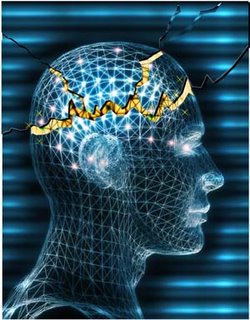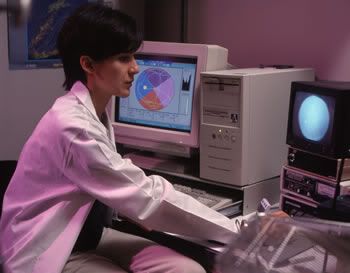Depression and suicide in adolescents with epilepsy.

Depression and suicide in adolescents with epilepsy.
Source
Neurology. 66(6 Suppl 3):S5-12, 2006 Mar 28.
Neurology. 66(6 Suppl 3):S5-12, 2006 Mar 28.
"Depression and other disorders are underdiagnosed and undertreated in young people with epilepsy. Signs of depression are often dismissed as "normal" reactions, even though depression is a life-threatening disease and a risk factor for suicide. A strong correlation between epilepsy and depression has been demonstrated in a variety of studies; etiological factors include neurologic, genetic, and iatrogenic factors. At the time of the initial diagnostic evaluation, the physician who is managing the patient with seizure disorder should make a psychiatric and psychosocial assessment to identify the patient's risk for depression. This approach enables the physician to assess the impact of epilepsy on the patient and to detect gross signs of psychiatric disorder. Effective treatment options include both somatic and nonsomatic therapies as well as combinations thereof."

Conclusions:
The impact of depression on adolescents with epilepsy and their families is clearly powerful and affects patients in many ways, at a time in their lives when they are naturally feeling vulnerable and anxious about their future. Adolescence is a period marked by profound developmental changes in biological, social, and psychological domains, featuring accelerated physical growth, consolidation of personality, and preparation for adulthood.
The impact of depression on adolescents with epilepsy and their families is clearly powerful and affects patients in many ways, at a time in their lives when they are naturally feeling vulnerable and anxious about their future. Adolescence is a period marked by profound developmental changes in biological, social, and psychological domains, featuring accelerated physical growth, consolidation of personality, and preparation for adulthood.

Appreciating the emotional burden of epilepsy on patients is essential to providing them with treatment that is complete. All patients with epilepsy should be assessed for symptoms of psychiatric disorder, following the outline provided here, and referred for psychiatric or psychologic intervention when necessary. Depression, although serious and potentially life threatening, is eminently treatable by both somatic and nonsomatic therapies or by a combination thereof. The role of the family, who can provide information and comment on the patient’s progress, should not be overlooked. 

The treatment of the adolescent with epilepsy and co-morbid depression requires a coordinated approach involving the young persons themselves, the family, the treating physician, and members of the multidisciplinary team providing services for this vulnerable group. The importance of seizure control in promoting patients’ psychological well-being should not be overlooked.




0 Comments:
Post a Comment
<< Home